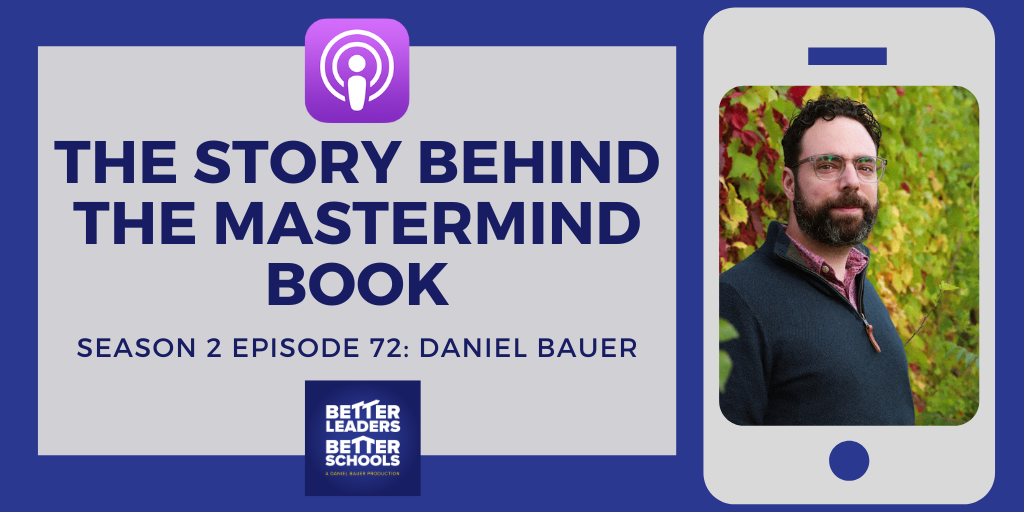Daniel Bauer is an unorthodox Ruckus Maker who has mentored thousands of school leaders through his Better Leaders Better Schools blog, books, podcasts, and powerful coaching experiences.
Mastermind: Unlocking Talent Within Every School Leader is a book that reimagines what professional development for school administrators looks like in order to meet the needs of all school leaders who currently feel isolated and overwhelmed.
[fusebox_transcript]
Show Highlights
- Tips and a challenge for the Ruckus Makers.
- Unorthodox approach to building effective leadership.
- Challenge and embrace your own ignorance.
- Relieve yourself of the burden of being an expert.
- How to make something that scares you a reality?
- Be the rock in the water for your community.
- Be interested, not interesting.
- Know you only have one audience .
- A tool to evaluate experiences to invest time and resources in.
- Fundamental Follow Up

“I love this idea you said ‘I’m going to put myself out there so people can see me learning’ and showing the example of challenging your own ignorance, embracing your own ignorance and being able to say, ‘teach me and bring in people to teach you.’ You’ve become the lifelong learner, the exemplified lifelong learner and that can be really inspirational to people. You’ve relieved them of the burden of being the expert. It’s really important for leaders.”
– Daniel Bauer
Daniel Bauer’s Resources & Contact Info:
Looking for more?
SHOW SPONSORS:
HARVARD GRADUATE SCHOOL OF EDUCATION
Transform how you lead to become a resilient and empowered change agent with Harvard’s online Certificate in School Management and Leadership. Grow your professional network with a global cohort of fellow school leaders as you collaborate in case studies bridging the fields of education and business. Apply today at http://hgse.me/leader.
School leaders know that productive student talk drives student learning, but the average teacher talks 75% of class time! TeachFX is changing that with a “Fitbit for teachers” that automatically measures student engagement and gives teachers feedback about what they could do differently.
Learn more about the TeachFX app and get a special 20% discount for your school or district by visiting teachfx.com/blbs.
Organized Binder is the missing piece in many classrooms. Many teachers are great with the main content of the lesson. Organized Binder helps with powerful introductions, savvy transitions, and memorable lesson closings. Your students will grow their executive functioning skills (and as a bonus), your teachers will become more organized too. Help your students and staff level up with Organized Binder.
Copyright © 2021 Twelve Practices LLC


